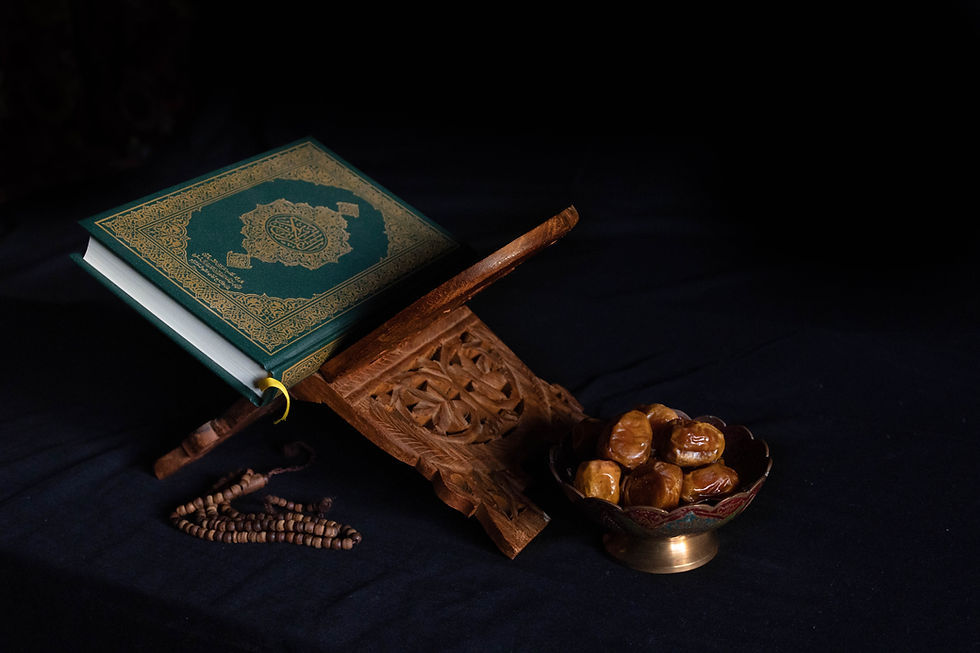Remarkable Islamic women influence Islamic history and inspire generations as leaders, orators, innovators, devotees, teachers, mothers and warriors. Here are a few outstanding women of Islam who leave their indelible marks on the world.

1. Khadijah bint Khuwaylid (c. 555 – 619 AD)
Khadijah bint Khuwaylid, first wife of Prophet Muhammad, is a successful businesswoman known for wisdom and compassion Among the most revered women in Islamic history, Khadijah employs Muhammad and quickly recognizes his integrity and prophetic gift.
Khadijah's faith and resilience provide the foundation for the Prophet’s mission, and her commitment to social justice mark her as a significant figure in early Islamic history. She supports the Prophet during early Islam and spreads the message of peace and faith.
2. Nusaybah bint Ka'ab (c. 595 - 634 AD)
Nusaybah, often referred to as Umm Ammara, is a distinguished figure in early Islamic history for her extraordinary bravery during several battles, including the Battle of Uhud, where she fights alongside Prophet Muhammad.
When 74 leaders, warriors, and statesmen from Medina gather at al-Aqabah to pledge allegiance to Islam, after being taught about the new religion by Mus`ab ibn `Umair, Nusaybah is one of only two women who personally vow loyalty to the Islamic prophet.

Nusaybah's husband, Ghazyah bin ʿAmr, informs Muhammad the women wish to offer their bayah or pledges of allegiance in person, to which he agrees. Upon returning to Medina, Nusaybah spreads the teachings of Islam among the women in the city.
As a fighter, Nusaybah is involved in the Battle of Uhud, where she defends the Prophet. She also takes part in the battles of Hunain, Yamamah, and the Treaty of Hudaybia. Nusaybah's legacy as a warrior, teacher and protector remains an inspiring tale of courage.
3. Fatimah bint Muhammad (c. 605 – 632 AD)
The daughter of the Prophet Muhammad and Khadijah, Fatimah is often celebrated for her virtues, compassion, and independence. She played a crucial role in the early Muslim community and is considered a symbol of strength and piety.
Fatimah actively supported her father’s mission and is later a central figure in the history of Islam, particularly within Shia traditions, where she is revered as a saint. Her legacy continues to influence the roles of women in Islamic society.

4. Aisha bint Abu Bakr (c. 613 – 678 AD)
Aisha, another wife of the Prophet Muhammad and daughter of his close friend Abu Bakr, is renowned for quick wit, and extensive knowledge of Islamic jurisprudence. Her intellect and expertise in various fields, including poetry and medicine, receive high praise from scholars.
As one of the few women who narrates hadith (traditions relating to the sayings and actions of the Prophet), Aisha's work is important to the transmission of Islamic teachings. Her insights into Islamic law and involvement in politics make her a significant figure in Islamic history.
5. Zainab bint Ali (c. 626 – 681 AD)
Zainab, granddaughter of the Prophet Muhammad, is admired for courage and eloquence. Following the tragic Battle of Karbala, where her brother, Imam Hussain, is killed, Zainab takes a stand against the injustices faced by her family and the Muslim community.
She courageously addresses the Yazid court, articulating the plight of her people and fostering resilience among Muslims. Her role as a leader and activist continues to inspire generations.

6. Rabi'a al-Adawiyya (713 – 801 AD)
Rabia Basri, a mystic and poetess from the 8th century, transcended societal norms through her devotion and spiritual wisdom. Her profound poetry continues to resonate with seekers of truth and enlightenment.
A mystic and poet from Basra, Rabi'a al-Adawiyya is celebrated as one of the foremost Sufi figures in Islam. She is known for her teachings on divine love and selfless devotion to God. Rabi'a rejected the traditional paradigms of religion that emphasized fear of punishment.
7. Fatima al-Fihri (c. 800 - 880 AD)
Fatima al-Fihri, an education pioneer, establishes the world's oldest university, the University of al-Qarawiyyin as a mosque in Fez, Morocco in 857 or 859. Her dedication to knowledge sets a standard for educational institutions worldwide.
The university becomes the most important congregational mosque in Fez and one of the foremost intellectual centers in Islamic North Africa. According to UNESCO al-Qarawiyyin is the oldest continuously existing university in the world.

8. Raziya al-Din (1205 - 1240 AD)
Raziyyat-Ud-Dunya Wa Ud-Din, commonly referred to as Razia Sultana, is a ruler of the Delhi Sultanate in the northern region of the Indian subcontinent. She's the first female Muslim ruler of the subcontinent and the only female Muslim ruler of Delhi.
Razia, daughter of Mamluk Sultan Shamsuddin Iltutmish, administrates Delhi in 1231–1232 while her father is in the Gwalior campaign. According to legend, Iltutmish is so impressed by her leadership he names Razia as his successor.

Following Iltutmish's reign, Razia's half-brother Ruknuddin Firuz, whose mother Shah Turkan intends to eliminate her, assumes power. Razia, during a revolt against Ruknuddin, rallies the people against Shah Turkan. She claims the throne after Ruknuddin's removal in 1236.
Non-Fiction Books:
Fiction Books:
READ: Lora Ley Adventures - Germanic Mythology Fiction Series
READ: Reiker For Hire - Victorian Detective Murder Mysteries